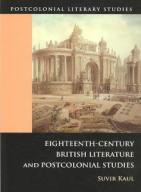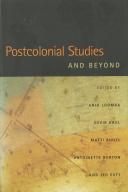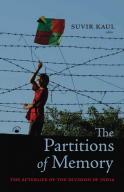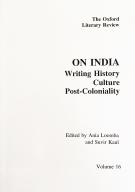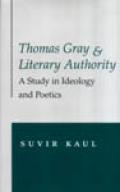Suvir Kaul received his B. A. (Hons.), M. A., and M. Phil. degrees from the University of Delhi, and his Ph. D. from Cornell University. His first job was at the SGTB Khalsa College in Delhi; since then, he has taught at the University of Illinois at Urbana-Champaign, at Stanford University, and at the Jamia Milia Islamia as a Visiting Professor. He has also held post-doctoral fellowships at the University of Canterbury at Kent and at the Society for the Humanities at Cornell University. He teaches courses in Eighteenth-century British Literature, Contemporary South Asian Writing in English, and in Literary and Critical Theory. He has published four books, Of Gardens and Graves: Essays on Kashmir; Poems in Translation (New Delhi: Three Essays Collective, 2015; Durham: Duke University Press, 2016), Eighteenth-century British Literature and Postcolonial Studies (Edinburgh: Edinburgh University Press, 2009), Poems of Nation, Anthems of Empire: English Verse in the Long Eighteenth Century (Charlottesville: University Press of Virginia, 2000; Delhi: Oxford University Press, 2001), and Thomas Gray and Literary Authority: Ideology and Poetics in Eighteenth-Century England (Delhi: Oxford University Press, 1992; Palo Alto: Stanford University Press, 1992) and has edited a collection of essays entitled The Partitions of Memory: the afterlife of the division of India (Delhi: Permanent Black, 2001; London: C. Hurst, 2001; Bloomington: Indiana University Press, 2002). He has also coedited (with Ania Loomba, Antoinette Burton, Matti Bunzl and Jed Esty) an interdisciplinary volume entitled Postcolonial Studies and Beyond (Durham: Duke University Press, 2005; Delhi: Permanent Black, 2005). At Penn, he has served as the Director of the South Asia Center (2005-07) and as the Chair of the English Department (2007-10).
Academic Freedom Statement
The policies of the University of Pennsylvania protect academic freedom, as defined in the AAUP’s 1940 Statement of Principles. This statement has been endorsed by over 250 scholarly and educational organizations in the United States, and its principles are written into faculty handbooks nationwide, including Penn’s. The principles of academic freedom were established to protect the integrity of research and teaching from interference by donors, trustees, politicians, and others who might seek to make universities serve private and political interests. They are founded on the idea that a university’s purpose is to generate new knowledge that can serve the common good in a democratic society, and that generating new knowledge requires free and open inquiry. To safeguard the university’s public mission, academic freedom entails the following rights for all faculty members—whether tenure-track or non-tenure track, and including graduate research and teaching assistants—and for students:
The right of faculty members to full freedom in research, teaching, extramural speech (public speech on issues of general concern) and intramural speech (speech about the university itself, including criticism of it).
The right of students to freedom in learning, which includes freedom of association and expression and freedom of inquiry in the classroom.
Academic freedom is only as strong as the institutions, procedures, and professional norms that faculty members established over the last century to protect it: institutions of faculty governance such as Faculty Senates and unions; the institution of tenure; and due process procedures that protect both tenure-track and non-tenure-track faculty against unjust discipline or dismissal. For further information about academic freedom, see the AAUP-Penn website.

 Department of English
Department of English



